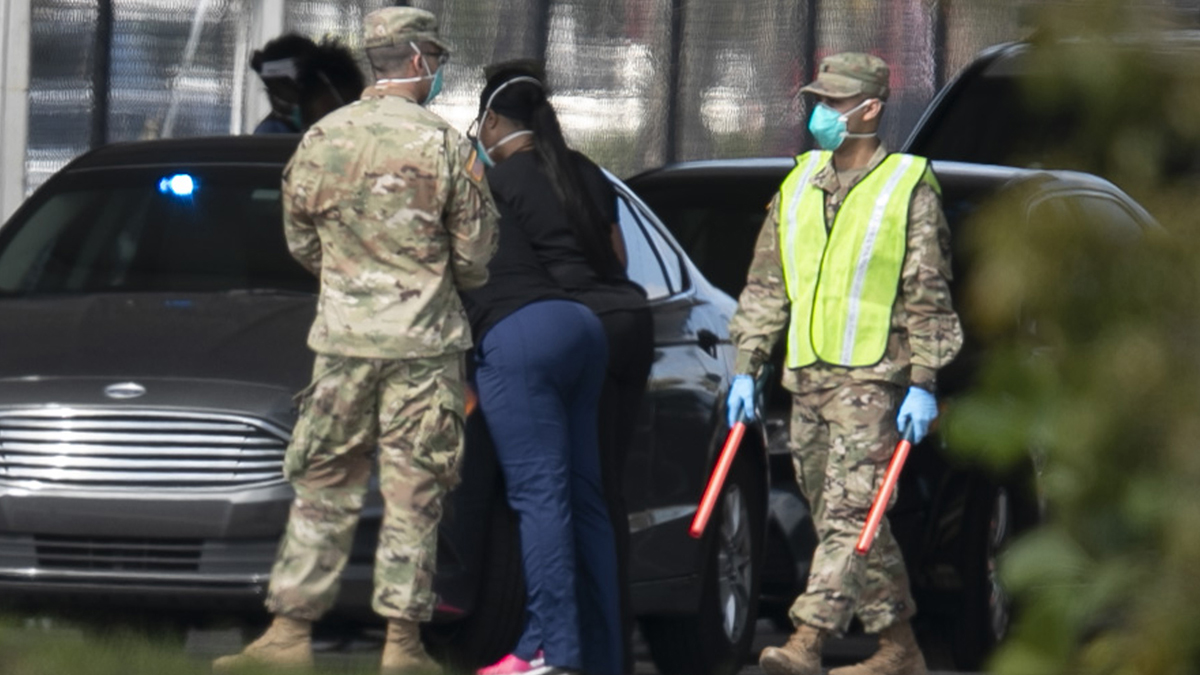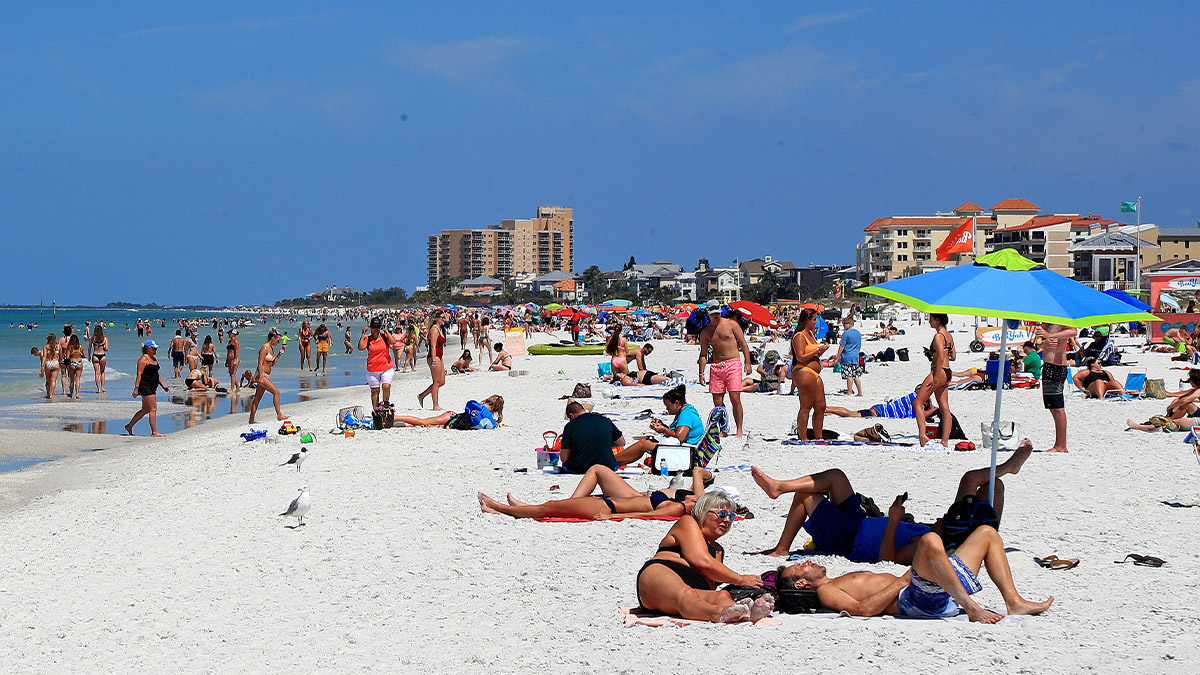What to Know
- The state's new total rose to 563, including 510 Florida residents and 53 non-Florida residents
- Miami-Dade reached 123 cases, while Broward led the state with 128
- The state's death toll still stands at 10 people
Confirmed coronavirus cases in Florida jumped to more than 560 Friday.
The state's new total rose to 563, including 510 Florida residents and 53 non-Florida residents, according to figures released by the Florida Department of Health. Miami-Dade reached 123 cases, while Broward led the state with 128. Another 1,049 people were being monitored by the health department.
CORONAVIRUS LATEST
The new deaths reported Friday include a person in Broward County who had previously tested positive for COVID-19, health officials said. No other details were released. Officials previously reported in their Friday afternoon update that an 11th person died but later corrected themselves. The state's death toll still stands at 10.
The death in Broward was that county's second. No deaths have been reported in Miami-Dade.
"Broward and Miami-Dade continues to be the hotspot," Florida Gov. Ron DeSantis said at a news conference Friday evening.
DeSantis also confirmed a second patient of the Atria Willow Wood assisted living facility in Fort Lauderdale who died had tested positive for COVID-19.
"What the investigation has found out is that construction workers, staff and cooks who were ill were not screened, they were allowed to go, work their jobs and mix with residents unimpeded," DeSantis said. "That is exactly what you are not supposed to do."
Earlier Friday, DeSantis issued a number of executive orders, including directing all movie theatres, concert houses, auditoriums, playhouses, bowling alleys, arcades, gymnasiums, fitness studios and beaches to close in Broward County and Palm Beach County. The closures will expire on March 31, but may be renewed by a written request of the County Administrator.
Broward and Palm Beach administrators will also have the ability to enforce, relax, modify or remove the closures as they see fit. The executive order also requires all restaurants, bars, pubs, night clubs, banquet halls, cabarets, breweries, cafeterias and any other alcohol and/or food service business establishment with seating for more than ten people within the incorporated and unincorporated areas of Broward and Palm Beach to close on-premises service of customers.
Another order lifted the restriction that prohibits restaurants from selling package sales of alcohol for delivery, take-out or consumption off-premises. Alcohol sales to go with food that is pick-up or delivered will be permitted and I.D. will be required for orders including alcohol.
In another order, DeSantis prohibited all hospitals, doctor's offices, surgery centers and other medical facilities from providing any medically unnecessary, non-urgent or non-emergency procedure or surgery.
"We're in it together, we're gonna get through it, it's not gonna be easy in the days and weeks to come but we will get through it," DeSantis said.
The first drive-thru COVID-19 testing site run by the Florida National Guard began operations Friday at CB Smith Park in Pembroke Pines.
On Thursday, Miami-Dade County Mayor Carlos Gimenez ordered all beaches, parks and “non-essential” commercial and retail businesses closed.
DeSantis already had ordered bars closed and restaurants to limit seating, while some municipal governments have limited eateries to take-out and delivery.
Gimenez's order allows several businesses to remain open, including health care providers, grocery stores, gas stations, restaurants and banks.
“I know it is very frustrating that we have new closures every day, but they are vital to protecting everyone in our County,” Gimenez said in a statement.
Also on Thursday, Miami Mayor Francis Suarez, who had tested positive for COVID-19, urged residents to self-isolate in their homes "to the maximum extent possible."
The vast majority of people recover in about two weeks from this illness with no more than a fever and a cough, but for some, especially older adults and people with existing health problems, it can cause severe illness requiring care at hospitals where beds and protective gear are in short supply.
Florida's economy depends heavily on tourism. In the last several days its theme parks have closed, including Walt Disney World and Universal Orlando, cruises have shut down and Fort Lauderdale and Miami Beach have shooed away thousands of spring breakers. Several cities have closed their beaches and others are expected to follow. Some officials wondered why all Florida beaches aren't closed as some remain packed.
The Florida Keys will close to visitors starting Sunday evening. Monroe County officials announced Thursday that no new reservations would be permitted until further notice. Long-term renters who are already in the Keys will be allowed to remain until the conclusion of their contracts.
On Thursday, Monroe County reported its first presumptive positive COVID-19 case.
Miami-based Carnival Corp. said Thursday it will make cruise ships from four of its brands available to serve as temporary hospitals where needed.
The world’s largest cruise line said its ships could serve mainly to treat non-coronavirus patients, freeing up beds in land-based hospitals. The company said ships can provide up to 1,000 hospital rooms and can be quickly provisioned with necessary medical equipment, including intensive care units.



